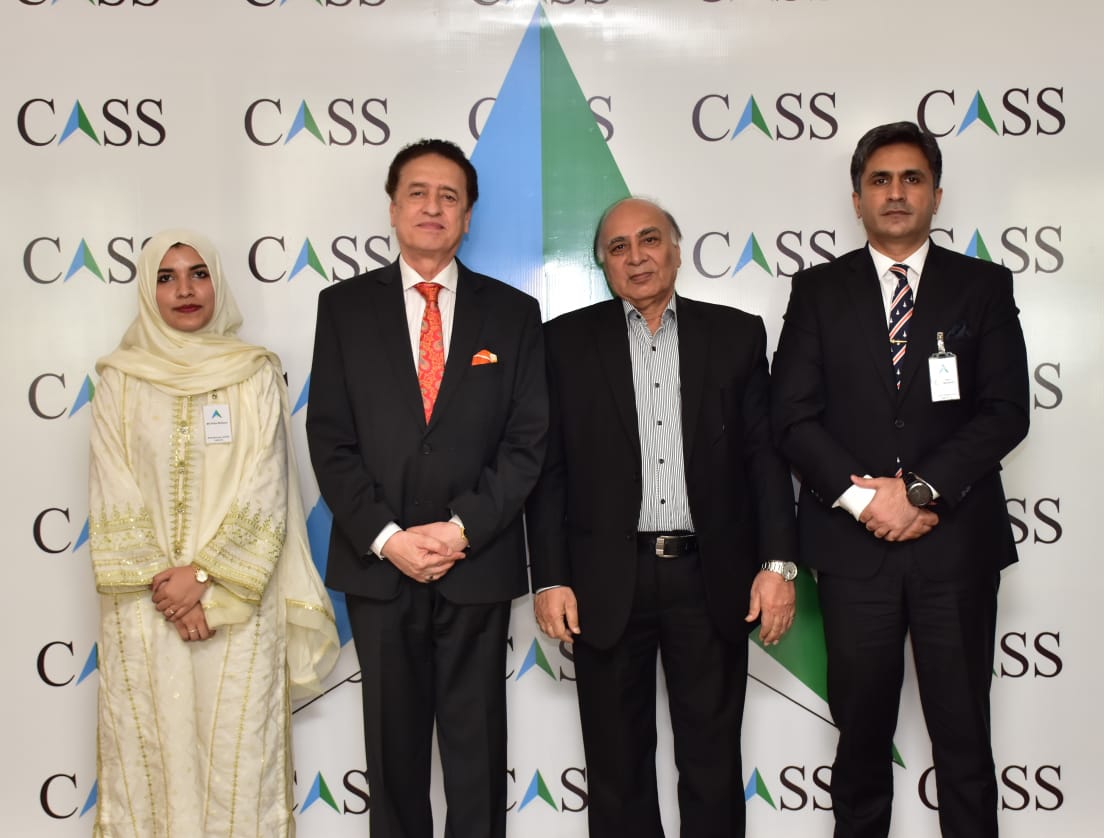LAHORE ( WNAM REPORT ): The Centre for Aerospace and Security Studies (CASS), Lahore organized a roundtable discussion titled “Biological Risks, Global Conventions and Pakistan’s Options”. As an independent think tank, CASS organises academic events for scholars and practitioners interested in national security in its wider context. The event was attended by academics, intellectuals, and domain experts. Ms Ezba Walayat Khan, a Research Assistant at CASS Lahore, delivered the opening address.
Prof Dr Syed Javaid Khurshid, Consultant for Science Communication and Diplomacy, delivered a talk structured in two sessions. In the first session, “Understanding Current Biosafety and Biosecurity Conventions, Treaties, Agreements and Implementation Challenges”, he traced the evolution of the 1972 Biological Weapons Convention (BWC) and explained that the absence of a verification mechanism undermines confidence and leaves states vulnerable to non-compliance. He highlighted the dual-use dilemma of modern biotechnology, where scientific advances may be misused for biowarfare or bioterrorism. Citing COVID-19, he highlighted the difficulty in distinguishing natural outbreaks from deliberate biological incidents.
In the second session, “Emerging Global Challenges in the Implementation of the Biological Weapons Convention and Pakistan’s Policy Options”, Dr Khurshid urged nations to take confidence building measures through the development of education programmes and strengthening methods and capacities for detection of outbreaks of diseases at the national, regional, and international levels. He also brought the Russia-Ukraine conflict in the discussion as it renewed attention to biological weapons concern. Furthermore, he commended Pakistan’s commitment to biosecurity through the BWC Act, Export Control Laws, and Biosafety Rules 2005. He concluded with several key recommendations, including the establishment of a vaccine bank, the local production of essential vaccines, and Pakistan’s inclusion in the Australia Group and the Wassenaar Arrangement.
In his concluding remarks, Air Marshal Asim Suleiman (Retd), President CASS Lahore, stated that today’s rapidly changing security landscape demands stronger global and national responses to biological threats. This is especially important in the backdrop of accidental releases, potential weaponisation of biology, and weak international oversight mechanisms. Nevertheless, he observed, Pakistan has met its BWC obligations through strong laws, biosafety institutions, and responsible scientific practice. However, Pakistan must strengthen resilience through ethical innovation and balanced diplomacy to promote equitable global preparedness for collective biological security.
The seminar concluded with a lively interactive session. It highlighted Pakistan’s BWC engagement and biosafety challenges, urging the development of a stronger biotechnology and pharmaceutical capacity for national health security. The participants appreciated CASS Lahore’s initiative in hosting an engaging and thought-provoking discussion.
73


